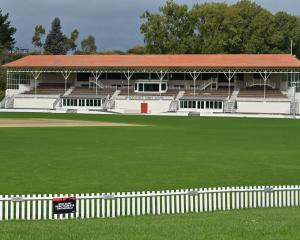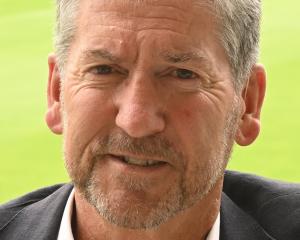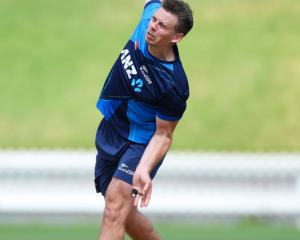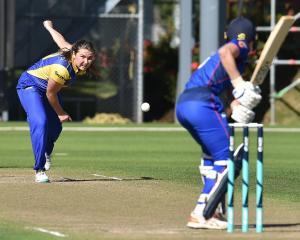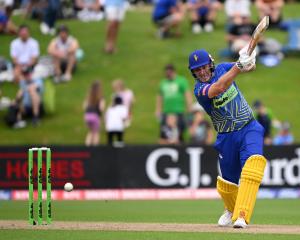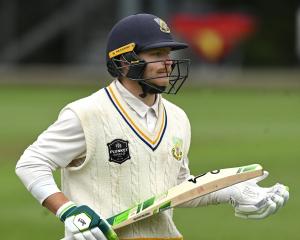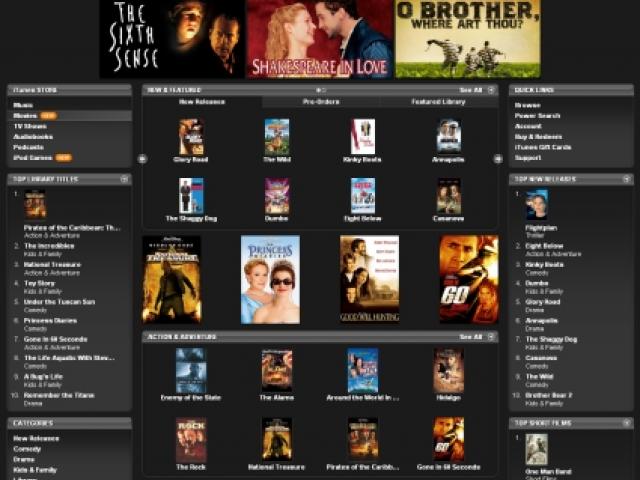
The first time Chris Cairns knew his name was linked to a match-fixing investigation was when a television commentator told him in the middle of a test match, a court in London has heard.
The former New Zealand cricketer has pleaded not guilty to a perjury charge arising from a 2012 libel trial in the United Kingdom over alleged match-fixing.
Wearing jeans and a dark blue suit jacket, but no tie, Cairns walked from the dock to the witness stand on Tuesday (local time) to give evidence in his own defence.
He swore an oath to tell the truth and confirmed his name as Christopher Lance Cairns before his lawyer, Orlando Pownall QC, directly asked him: "Were you involved in match-fixing?"
"No," said Cairns, followed by another question: "Did you contemplate match-fixing?" "No," said Cairns.
Born in Picton, Cairns said he was an "active young boy who loved cricket" who was "always tall for my age" and ended up playing men's-grade cricket as a young teenager. He went on to play for New Zealand and Nottinghamshire, like his father Lance, and had an "illustrious career" from the late 1980s until 2006.
For the last few years of his international career, Cairns had retired from tests and was only playing one day internationals. He said his New Zealand Cricket contract was around $75,000 and he earned a further $25,000 to $40,000 in speaking engagements and media commitments. "Once your star starts to wane, there are not the same opportunities."
In 2006, he met the Shah family who were involved in the diamond trade. Vijay Shah had paid a "significant sum" for a coaching clinic which Cairns arranged to be held at the Lord's cricket ground in London.
Cairns was looking for work opportunities outside cricket and started working with the Shahs, moving to Antwerp and Dubai, in the diamond trade.
He also explained how he met Andrew Fitch-Holland, his co-accused, through the Lashings cricket team described by Cairns as the "Harlem Globetrotters" of retired players who travel around different clubs in fundraising matches.
Was Fitch-Holland a cricketer? "Certainly not," said Cairns of his friend who acted as the general manager.
Cairns was asked by his lawyer about his relationship with various witnesses and could not recall any reason for animosity. What about Ricky Ponting?
"Not on each other's Christmas card list. We had the odd verbal stoush on the field. He was competitive, I was competitive, we played the game hard."
Cairns recalled how former New Zealand skipper Stephen Fleming reported a match-fixing approach in 1999 and described the honesty of his former captain as "beyond reproach".
Even back then, Cairns said the position around match-fixing approaches was clear for players. Report to the authorities, or "you were in trouble".
After earning as little as $75,000 in his final years playing for New Zealand, Cairns said he was "very" excited about earning $US170,000 ($NZ250,000) to play for the Chandigarh Lions in the Indian Cricket League in 2007.
The team lost in the final to Chennai, the favourite for the title, and he signed a new contract for $US350,000 in 2008 - more than $US1 million over three years. Around this time he met Mel Crosser during a beach cricket competition in Australia and later separated from his wife, Carin.
Lou Vincent joined the Chandigarh Lions in 2008 and Cairns said the former Black Cap was not "in the friend category". "There's a misconception around how sports people are close. You see the euphoria, the hugs. But it's a workplace environment."
In the first week of the trial, Vincent told the jury he told Cairns, the Chandigarh captain, about how someone approached him to match-fix. Vincent alleged Cairns then recruited him to underperform.
Cairns said the meeting did not happen and Vincent never fixed games in his instructions. "If he had, we would be straight off to see Howard Beer or Tony Greig," said Cairns, referring to senior management in the ICL.
Vincent also told the jury about how Cairns was livid with him for failing to fix a game when he mistakenly hit a six and then a four. Cairns disagreed with Vincent's assessment of the six as a "fluke".
"I think he came down and gave himself room...it was a good shot timed very, very well."
Vincent describe the four off the next balls as an edge - Cairns said it was a late cut and Vincent was not trying to get out.
"A tough shot which came off the face of the bat. That came off the face of the bat, no edge."
Cairns agreed that he was livid - not because Vincent had ruined the fix, but had jeopardised the chances of victory. "I finished up man of the match, won us the game."
While dismissing Vincent's version of events entirely, Cairns agreed that he did meet with Brendon McCullum shortly before the beginning of the first Indian Premier League tournament.
Players often met in hotels, to avoid the attention of the cricket-mad population, and Cairns said while he could not recall using the words "business proposition" there were frequent opportunities to earn money outside of the game.
"It wasn't an overly memorable meeting with an old mate."
Match-fixing was topical at the time but the pair spent "minimal" time discussing it, said Cairns. He agreed he may have explained to McCullum how spread betting worked by using a pen and paper, but described the New Zealand captain as an "adept poker player" and gambler on horses.
"Brendon was not a shrinking violet. He's not the sort of person you have to explain the ins and outs of gambling."
But Cairns absolutely denied telling McCullum he was involved in match-fixing with Vincent and Daryl Tuffey, or approach him to become involved. "He would have reported it. Players were very well informed about any approach- report it."
They met up again in England a few months later and Cairns denied a second approach to McCullum about match-fixing.
Mr Pownall asked him what McCullum's reaction would have been, if Cairns had approached him again, after being rebuffed the first time.
"Along the lines of you're having a laugh. Brendon is a forthright character, doesn't take a backwards step and would have made it very very clear he would not be involved in matchfixing."
Cairns also talked about a trip to Dubai with Vincent, Tuffey and the Australian player Matthew Elliott.
Vincent gave evidence that the trip was paid for by Cairns to reward the Chandigarh players who were fixing - with the exception of Elliott - and Cairns gave him the equivalent of $US2500.
Cairns denied there was anything "sinister" about the holiday. He denied giving Vincent any money but said he might have arranged for Vijay Dimon, the Shah's diamond company, to pay for the flights.
In return, Cairns said the players might have visited the Vijay Dimon offices or gone out to dinner with clients.
"It's the Indian love affair with cricket. To have four of us attend a dinner, that's something the Indian cricket lovers enjoy."
Cairns confirmed he was dismissed from the Indian Cricket League in October 2008 and not for match-fixing, although he did discuss the "rumours and innuendo" with fellow Chandigarh player Andrew Hall.
After leaving India, Cairns relocated to Dubai to work for Vijay Dimon and Mel was working for a sports analysis company.
In the years after the alleged match-fixing approaches to McCullum in 2008 - who told other players like Daniel Vettori and Kyle Mills - Cairns said he enjoyed social occasions with the New Zealand players including an invitation into the dressing room.
Another time, Cairns played golf in Dubai with McCullum, Vettori and the New Zealand coach Mark Greatbatch.
Cairns also talked about a party in Bangalore with members of the New Zealand cricket team, in which players were wishing him luck in the libel proceedings against Lalit Modi.
Under questioning from Mr Pownall, Cairns confirmed some of the New Zealand players - not McCullum or Vettori - were "entertained by the ladies" in another room.
Vettori called Cairns the next day, concerned about whether anyone had been "caught on tape".
Cairns recalled his "horror" at Modi's tweet which accused him of match-fixing and borrowed £45,000 ($NZ 103,000) to fund the legal proceedings in London.
Modi had "unlimited" wealth, said Cairns, but he just wanted and apology to "right the wrong".
He came close to settling with Modi three times but the millionaire did not want to pay all of Cairns' legal costs.
At one point when talking his young daughter's hearing impairment, Cairns choked up and said: "I miss her".
She is in Australia with her mother Mel, who is set to give evidence by video-link later this week.
The first time Cairns knew his name was linked to a match-fixing investigation was in the middle of a test match he was commentating for Sky in Dunedin.
The first story in the New Zealand Herald did not name the three ex-players under scrutiny and Cairns wondered who they could be.
He walked on to the field and asked his Sky Television colleague Simon Doull, another former New Zealand player, if he knew the identities of those under investigation.
"He said 'it's you, Lou and Daryl'," said Cairns.
"My head started spinning and I asked: 'Everybody knows don't they?' He said 'Yeah'."
Cairns will be cross-examined by Crown prosecutor Sasha Wass, QC, tomorrow (local time).


